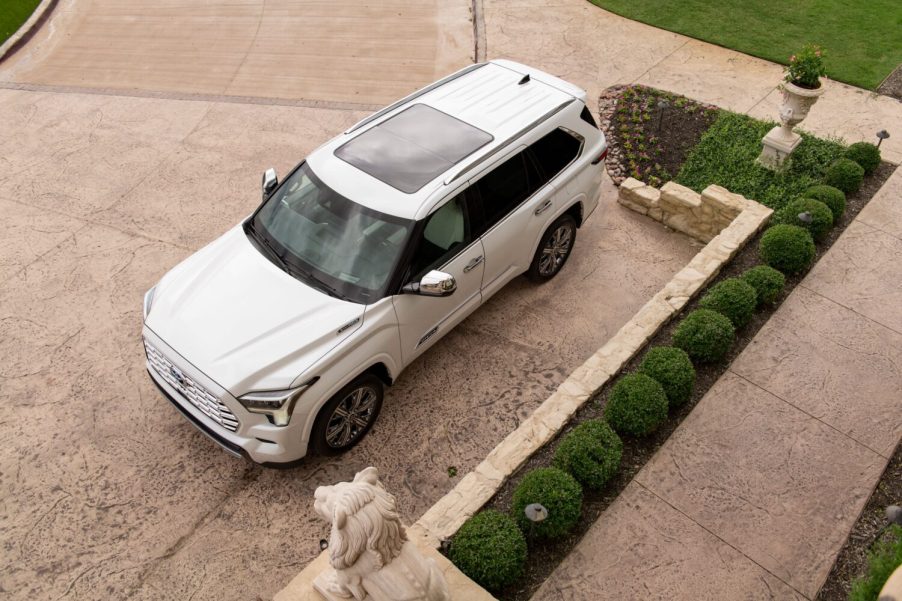
The 10 fastest-selling cars in the US right now are nearly all from the same automaker
As summer 2024 closes out, one parent automaker unabashedly dominates with the fastest-selling cars in the U.S. Amazingly, there’s only one outsider OEM on this list. Let’s get to it.
The 10 fastest-selling cars in the U.S.
| Make | Model | Market Day Supply | Total For Sale | Total Sold (45 Days) |
|---|---|---|---|---|
| Toyota | Sequoia | 20 | 2,061 | 4,631 |
| Lexus | GX | 22 | 2,655 | 5,549 |
| Toyota | Corolla Hatchback | 26 | 1,005 | 1,772 |
| Honda | Civic Hatchback | 26 | 5,347 | 9,282 |
| Toyota | Highlander | 27 | 5,853 | 9,790 |
| Lexus | ES | 27 | 1,309 | 2,179 |
| Toyota | Land Cruiser | 29 | 4,333 | 6,839 |
| Lexus | NX Hybrid | 29 | 2,253 | 3,556 |
| Toyota | 4Runner | 30 | 7,103 | 10,777 |
| Toyota | Corolla | 31 | 22,309 | 32,735 |
Toyota wins six of the 10 spots, while its subsidiary OEM Lexus takes three. The Honda Civic hatchback is the only non-Toyota on the list.
Six of the top 10 are SUVs, while four are sedans. Zero pickup trucks made the list of fastest-selling cars in the U.S.
The Toyota Sequoia currently has a 20-day market supply, having sold 4,631 units during the 45 days preceding. This sharply contrasts other full-size SUV sales, like the Jeep Grand Wagoneer L, which has a 327-day market supply and has only sold 183 units in the last 45 days.
It doesn’t end there for Stellantis
The parent company, which owns Jeep, is far from landing in the fastest-selling cars in the U.S. Unfortunately for it, five other Stellantis models (the Alfa Romeo Giulia, Alfa Romeo Stelvio, Fiat 500e, Jeep Renegade, and the Dodge Horne) joined the Grand Wagoneer L on the list of 10 slowest-selling cars in the U.S.
The automaker even paused production of the Fiat 500e this week, citing low sales. According to CarEdge, the compact EV has a 454-day market supply, and only 107 units sold since late July.
Toyota, however, is clearly ringing the bell on fastest-selling cars in the U.S. heading into Q3. Of note are Toyota Corolla sales, topping 32,000 in the past 45 days. We’ve reported on whether the U.S. is starting to ditch our beloved SUVs and convert to a “small car nation.” Despite Toyota’s relatively low full-size SUV market day supply, with Gen Z mostly favoring smaller cars (if driving at all), plus the dangerously unprofitable costs of building large EVs, we could still be moving toward more compact, efficient vehicles.



